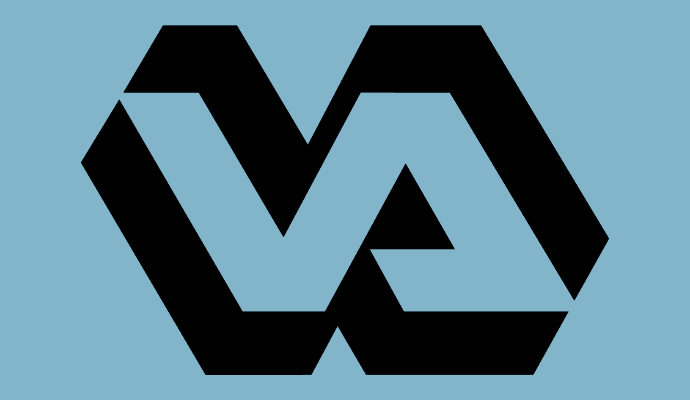By Suzanne Gordon and Russell Lemle, VHPI Policy Fellows
Over the past decade, a heated argument has raged in Congress and the media over the best way to provide healthcare to the nation’s veterans. This debate is between two divergent ideologies. One side heralds the wisdom of the private sector and argues that more veterans should have their physical and mental health conditions treated outside the VA. The other camp argues that the Veterans Health Administration (VHA) — the largest and only fully integrated, publicly funded healthcare system in the country — is the best one for the job and must be adequately staffed and supported. The evidence has long favored the latter position. Now, with an unprecedented new study that compares both systems side-by-side, this debate has been all but settled. Researchers have now proven beyond a doubt that the VHA far outperforms the private sector because what they call the “VA advantage.”
For seventy years, American taxpayers have invested in the VHA, which has paid out excellent dividends. Multiple studies have documented that the VHA provides care that is equal — and very often superior — to that provided by the private sector in everything from the treatment of cancer and heart disease, to the management of chronic conditions, to preventing veteran suicide. VHA’s success is especially remarkable given that the patients treated at its facilities have, on average, worse underlying health conditions and poorer prognoses.
Yet there was long one missing piece of evidence: an apples-to-apples comparison of care that matched cohorts of veterans inside and outside the VHA. Previously, most research contrasted the care of veterans in the VHA with the care of non-veterans in non-VHA facilities.
That absence was recently resolved in a meticulously designed, groundbreaking study. This new research, which, so far, has not received sufficient attention, categorically demonstrates that veterans who get their care at the VHA live longer during and after a medical emergency, and at lower cost, than those receiving non-VA care. For veteran advocates, whether in Congress, the media, or in veterans service organizations, the take-home message of this study is crystal clear: privatizing VHA care by outsourcing more services to the private sector is not only irresponsible policy making but actually may cost veterans their lives.
The study analyzed immediate, 28-day and one-year mortality outcomes of 400,000 instances when veterans aged 65 and older who were “dually eligible”— i.e. they could receive care at either a VHA hospital or a non-VA one through Medicare — called 9-1-1 for an ambulance. The ambulance driver impartially took them to a VHA or to a non-VA hospital. Since ambulance rides are quasi-randomly assigned within subjects’ zip codes and prior VHA and non-VA utilization, the study design allowed a direct comparison of the effects of VHA versus non-VA emergency care on health outcomes.
The outcomes at the two systems were resoundingly different. Veterans who were treated inside the VHA system during and immediately after an emergency had a 46 percent reduction in 28-day mortality. Wondering whether these results might fade over time, the researchers tracked the death rates for a year after the initial ambulance ride. They found that, although it was most concentrated during the first weeks, the survival advantage remained stable for the entire year. This “VA advantage” was, importantly, as large for Black and Hispanic veterans as for non-minority ones – a pivotal fact for those concerned about the pronounced and long-standing health care inequalities inside the private sector system.
Equally consequential, the authors found that the VHA spends less than the private sector providers in producing such markedly better outcomes. The study reported that the VHA reduces per-patient cumulative spending at 28 days by $2548, approximately 21 percent less than the private sector. In short, the VHA is more productive and achieves better outcomes at lower costs.
What produces this VA advantage over private sector care, the researchers ask? The survival and cost advantage, they conclude, probably stems from numerous factors. One may be that VHA patients have a lower probability of inpatient hospital admission and fewer inpatient hospital days, but more outpatient follow-up and visits. This can avoid unnecessary, futile treatment.
More critically, veterans cared for inside the VHA benefit from elaborated systems of care coordination and “more effective information retrieval.” The authors note that this system is entirely unlike “the high degree of fragmentation across providers in the US private healthcare sector.” While they focus on healthcare information technology that makes it far easier for VHA providers to communicate through a common electronic health record (EHR), VHA care coordination exists on other levels, too. VHA providers communicate not only via common chart notes, but also routinely meet face-to-face in the same facility and share insights about their common patients. In the private sector, this kind of consistent communication is rare even within the same hospital system.
Countless other studies document the positive impacts of the VHA’s care coordination, not only when it comes to survival after a medical emergency room visit, but also for other medical interventions and treatment. One example of how this makes a difference comes in a study that compared the treatment of older male veterans in VHA with cancer with older non-VA patients seen through traditional, fee-for-service Medicare. The study found that VHA offered care that was as good and often better than that offered by non-VA doctors. According to a lead author of the study, Harvard Medical School professor Nancy Keating, a key factor accounting for this result is that care at VHA “is much better coordinated than in most other settings.” She added that VHA “has a good, integrated medical record. Their doctors all work together and communicate more effectively.”
Studies show that diabetic patients treated by VHA do far better on many critical measures than those using private insurance, or Medicare. Outside VHA, diabetic patients are not generally cared for by teams, but, rather, by different specialists, who rarely coordinate their care. By contrast, VHA patients suffering from diabetes receive care from providers who work as a team and thus have better management of their disease.
A 2019 study of patients who had end stage renal disease and were receiving dialysis found that, “among members of this national cohort of veterans who initiated dialysis between 2008 and 2011, we found that 2-year mortality rates were lower for those receiving dialysis exclusively in VA dialysis facilities and for those dialyzing in more than one setting than for those who received dialysis exclusively through Medicare.”
The authors of this study asked: “What might explain more favorable survival rates in cohort members who used VA dialysis or received dialysis in a dual setting compared with those who received dialysis under Medicare?” Their answer: “Compared with veterans receiving dialysis exclusively under Medicare, those who dialyze exclusively within the VA likely have more ready access to comprehensive care benefits, care coordination due to colocation of dialysis and non-dialysis services, and informational continuity stemming from VA’s seamless electronic medical record.”
Regrettably, far too many veterans’ advocates have an inclination to favor privatizing veterans’ healthcare and ignore the many robust findings of the “VA advantage.” Indeed, some claim that the VHA’s model of comprehensive, coordinated care is inefficient and unnecessary. Former VA Secretary David Shulkin has argued that the VHA should concentrate on providing a limited set of core services like mental healthcare, primary care and rehabilitation, among others. Remaining services, like audiology, optometry, and other specialist services should be farmed out to the private sector, he contends. The Koch-funded Concerned Veterans for America has insisted that veterans should have full choice where to go for healthcare, paid for by taxpayer funds that would have otherwise gone to supporting VHA facilities. The obsessive focus on “choice,” which has been promoted by other advocates of VHA privatization, like Avik Roy, a former hedge fund manager who is now President of the Koch-connected Foundation for Research on Equal Opportunity, contends that veterans “should enjoy the same healthcare options as all Americans.”
The definitive study, coming on top of many others, should not only give pause to this idea, but quash it entirely. VHA produces better outcomes at a lower cost. Period. The VA advantage lies precisely in its provision of a full set of comprehensive, interconnected services that are woven together to create a national system of care. To disrupt and dismantle this tapestry of care through wholesale or piecemeal privatization, the authors argue, would “lead to both higher spending and worse healthcare outcomes.”
There’s evidence that even if VA Secretary Denis McDonough hasn’t seen this study, he’s aware of the myriad benefits of VA care. While McDonough said he would ensure “vibrant” private sector care networks for veterans, he suggested any outsourcing must not compromise the VA’s many benefits. “We also have to be really careful that we’re also maintaining investment in the integrated system of the VA itself,” he said. “We have to recapitalize that and make sure that these institutions — many of them over 50 years old — are brought up to speed.“



